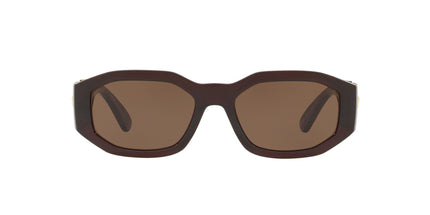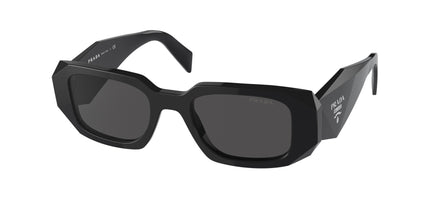Common Eyesight Myths You Should Know

If you are a glasses wearer, you must have heard people asking you to eat more carrots to enhance your vision. Or, stop wearing eyeglasses because it would deteriorate your vision. But have you ever tried to discover whether these conceptions were factual or just myths?
Proper knowledge is essential to take care of your eyes and vision. Instead of paying heed to these misconceptions, you should raise awareness. Here are a few myths and facts you should know about your vision and eyesight:
Myth#1: Reading Fine Print for Long will Damage Your Eyes
Fact: This is untrue. The fine print will cause eye strain. However, it will go away after you rest your eyes. No evidence suggests that fine print will cause permanent damage to your eyesight.
Myth#2: Reading in the Dark or Dim Light Will Damage Your Eyesight
Fact: This is a comment generally made by our moms. Before inventing electricity, our ancestors used to read and write in dim or low light. Reading in low light or darkness can cause eye fatigue and a headache but not permanent eye damage.
Myth#3: Eating Carrots Will Improve Your Eyesight
Fact: People say this generally to eyeglass wearers. Carrots are enriched with vitamin A, which you will require for a healthy diet. However, eating carrots or drinking their juice won’t enhance your vision.
Myth#4: Watching TV or Computer Up Close Will Damage Your Eyes & Vision
Fact: Well, let’s break this myth into two parts. As mentioned above, if you wear glasses or not, watching TV or using your laptop up close will not permanently damage your vision. However, it will cause eye strain and fatigue.
Once you rest, your eyes will be fine again. The second part is that studies back the harmful effects caused by LED screens. This means that overuse of these screens can disturb your body.
For example, blue light may harm your circadian cycles by keeping you up all night, affecting your sleep schedule and the quality of your sleep. It may even suppress your immune system. You can counter this blue light effect with blue light lenses.
Myth#5: Eye Examination is Only Required If You Have Problems
Fact: Again, untrue! You may feel you have perfect vision. But this doesn’t mean that everything with your eyes is fine. Getting your eyes checked every once in a while will highlight any eyesight deterioration signs sooner. A good eyesight examination will include the binocular vision evaluation test that shows if your visual performance is good.
Myth#6: Too Much Eye Usage Will Wear Out Your Eyes
Fact: This just sounds hilarious. Using too much of any sense would not make you lose it. If you use your sense of smell too much, you won’t lose your nose. The same goes for your eyes. Your vision won’t get damaged because you “used your eyes too much”.
Myth#7: Wearing Eyeglasses of a Higher Number Than Your Prescription Will Damage Your Eyes
Fact: Eyeglasses have a function where they change the light rays before they reach your eyes. These glasses do not change the anatomy of your eye. Wearing the wrong glasses or with a higher number won’t damage or harm your eyes.
However, the glasses may cause a temporary headache. The worst these glasses can do is make you uncomfortable because of the blurriness it causes and fail to correct your vision. But it will not affect your eyes.
Myth#8: Wearing Glasses Will Weaken Your Eyes & Vision
Fact: Eyeglasses were made to correct eye problems. They correct farsightedness, astigmatism, nearsightedness, and more. Glasses are the perfect external optical aids that help correct your vision if you have refractive errors.
However, lazy eye (amblyopia) or crossed eye (strabismus) in children have a different scenario. In such cases, glasses are used to improve vision or help straighten the vision in kids. If kids suffering from these conditions don’t wear eyeglasses, it may lead to permanently defective eyesight.
Myth#9: Crossing Eyes May Lead to Permanently Crossed Eyes
Fact: Crossed eyes are a disease caused by uncorrected refractive error or muscle, or nerve damage. If you do move your eyes in any direction, it will not force the eyes to permanently stay in that position.
Conclusion
The above-mentioned myths are some of the most common ones. You will find many more myths. But if you really want to keep your eyesight and eyes healthy, learn to differentiate between myths and facts. A good way of doing so is by visiting your optician every once in a while, and they will tell you everything you need to know about your eyes.















 Back to Blog Page
Back to Blog Page











